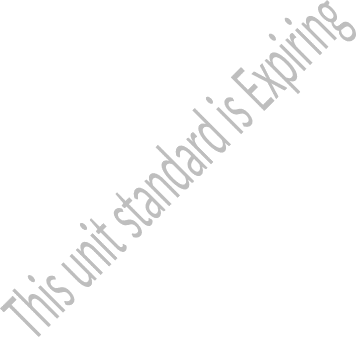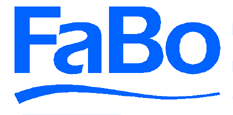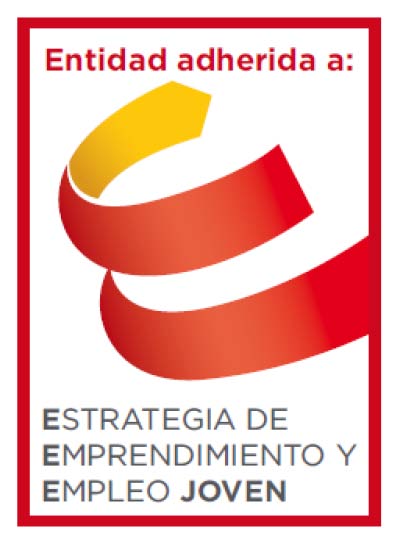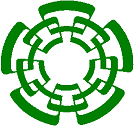NZQA EXPIRING UNIT STANDARD 8584 VERSION 4 PAGE 6
NZQA EXPIRING UNIT STANDARD 101 VERSION 8 PAGE 3NZQA EXPIRING UNIT STANDARD 10532 VERSION 5 PAGE 3
NZQA EXPIRING UNIT STANDARD 1117 VERSION 6 PAGE 4
NZQA EXPIRING UNIT STANDARD 1120 VERSION 6 PAGE 2
NZQA EXPIRING UNIT STANDARD 11281 VERSION 6 PAGE 3
NZQA EXPIRING UNIT STANDARD 11582 VERSION 6 PAGE 4
8584 Develop education programmes for daily living skills with young people who have vision impairment
|
NZQA Expiring unit standard |
8584 version 4 |
|
|
Page |

|
Title |
Develop education programmes for daily living skills with young people who have vision impairment |
||
|
Level |
7 |
Credits |
8 |
|
Purpose |
People credited with this unit standard are able to: describe and appraise daily living skills programmes for young people with vision impairment; demonstrate knowledge of the development of eating skills in young people with vision impairment; demonstrate knowledge of the development of personal care skills in young people with vision impairment; demonstrate knowledge of the development of household management skills in young people with vision impairment; appraise issues associated with daily living skills programmes; carry out assessment of daily living skills for a young person with vision impairment; develop programmes to promote independence or partial independence in daily living skills; and implement programmes to promote independent daily living and independence skills.
This unit standard is intended for those who work in specialist teaching or advisory roles with young people who have vision impairment. |
|
Classification |
Human Services > Rehabilitation and Habilitation of the Visually Impaired |
|
Available grade |
Achieved |
Guidance Information
1 This unit standard is interpreted in accordance with: Health and Safety in Employment Act 1992.
2 Learning and teaching approaches may require further adaptation for young people with multiple special needs.
3 Glossary
Vision impairment refers to a wide range of visual difficulties, which can be placed on a continuum that ranges from mild interferences in the visual system to total blindness;
Young people refers to infants, toddlers and young children; children; and adolescents;
Independence may not be achievable for some young people, in which case partial independence is sought;
Daily living skills programme refers to the formal curricula and daily experiences which provide young people with the skills for completing activities in daily living activities including eating and drinking, personal care and household management;
Education literature refers to the information contained in research literature, which is recognised by the professional groups involved as meeting acceptable scientific standards;
Eating skills include techniques for finger feeding and use of utensils as well as socially appropriate mealtime behaviours including seating, posture, voice level, techniques for ordering food;
Personal care includes the following activities: dressing and undressing, personal hygiene including toileting, showering, bathing and handwashing, menstrual care, teeth care, hair care and personal grooming;
Household management includes food preparation, house care, clothing care, use and maintenance of appliances;
Appraise refers to an analytic process which involves identifying, clarifying and verifying claims, and testing the reasoning which links these claims to conclusions.
Outcomes and performance criteria
Outcome 1
Describe and appraise daily living skills programmes for young people with vision impairment.
Range evidence is required of three programmes.
Performance criteria
1.1 Special needs of young people with vision impairment are identified in relation to learning daily living skills through non visual modes.
Range examples of special needs are – alternatives to visual observation and incidental learning, need for organisation, need for orientation, need for special equipment and aids.
1.2 Methods that may facilitate the development of daily living skills are observed and described.
Range active participation, use of task analysis, backward chaining, prompts, instructions, sequencing, feedback, reinforcement, generalisation techniques.
1.3 Current programmes in daily living skills are described and appraised in terms of education literature.
Outcome 2
Demonstrate knowledge of the development of eating skills in young people with vision impairment.
Performance criteria
2.1 The development of eating skills are described in terms of possible differences and difficulties that may be experienced by young people with vision impairment.
Range examples of differences and difficulties are – tactile defence, chewing, swallowing, biting, lack of visual information.
2.2 Particular techniques are demonstrated to assist a young person to develop socially acceptable eating skills.
Range appropriate seating and positioning, systematic location of various foods, cutting, finger feeding, lifting, scooping, stabbing with a fork, using knife and fork together, drinking, mealtime behaviour, pouring, serving.
Outcome 3
Demonstrate knowledge of the development of personal care skills in young people with vision impairment.
Performance criteria
3.1 The development of personal care skills are described in terms of possible differences and difficulties that may be experienced by young people with vision impairment.
Range examples include but are not limited to – personal grooming, toileting, dressing skills, choice of clothing, customs.
3.2 Particular techniques are demonstrated for assisting a young person to develop skills in personal care.
Range visual and non-visual modes of learning hygiene and grooming skills, modelling, verbal explanations, play, hand over hand.
Outcome 4
Demonstrate knowledge of the development of household management skills in young people with vision impairment.
Range household management skills include but are not limited to – sweeping floors, dusting rooms, vacuuming, washing dishes, laundry, tidying rooms.
Performance criteria
4.1 The development of household management skills are described in terms of possible difficulties experienced by young people with vision impairment.
Range examples of difficulties are – maintenance of cleanliness, safety factors.
4.2 Particular techniques are demonstrated for assisting a young person to develop household management skills that are functional for a young person and socially appropriate.
Outcome 5
Appraise issues associated with daily living skills programmes.
Performance criteria
5.1 Issues are evaluated in relation to assessment of daily living skills.
Range examples of issues are – selection of content and methods, natural versus clinical settings.
5.2 Issues are evaluated in relation to cultural practices.
Range examples are – types of food, house keeping customs, self care customs.
5.3 Issues are appraised in relation to selecting programme objectives and methods.
Range examples of issues are – selection of functional skills, safety, independence and partial independence, preferences of young person and others, integration with other objectives.
Outcome 6
Carry out assessment of daily living skills for a young person with vision impairment.
Range child, adolescent.
Performance criteria
6.1 Ways to carry out an assessment of daily living skills are identified and appraised from current practice and education literature.
Range observation, interviews.
6.2 Assessment is planned and specifies procedures for carrying out assessment.
Range content, methods, procedures, settings, people.
6.3 Assessment is carried out and analysed and identifies skills and needs in particular areas of daily living.
Range areas of daily living include but are not limited to – activities or parts of activities completed independently and levels of assistance required, taking account of individual’s home and community environments, consideration of functional and age appropriate skills.
6.4 Assessment information obtained in one setting is validated against information gathered in different settings.
Range examples of settings are – education environment, home, community.
Outcome 7
Develop programmes to promote independence or partial independence in daily living skills.
Range child, adolescent.
Performance criteria
7.1 Programme goals are written that reflect assessment information.
7.2 The content of the programme is specified and incorporated where appropriate in the individual education plan of a young person.
Range goals, methods, settings, aids and equipment, people, monitoring and evaluation, generalisation.
7.3 The programmes are written in ways that enable opportunities for teaching and practice that are integrated with other skills and occur in natural settings and situations.
Range examples of settings are – home, community.
7.4 The programmes are written in consultation with those involved in implementation and meet the needs of participants, and are in accordance with current professional practice and ethical standards.
Range examples are – parents, young person, occupation therapist, techniques or daily living skills instructor, teacher.
Outcome 8
Implement programmes to promote independent daily living and independence skills.
Range child, adolescent.
Performance criteria
8.1 Programmes are implemented in accordance with written plans, professional practice and ethical standards.
8.2 Procedures are used which respect the dignity of the young person learning daily living and independence skills.
Range location, timing, assisting procedures, choices.
8.3 Strategies are used that assist young people to develop daily living and independence skills.
Range examples of strategies are – instructions, models, choices, prompts, task analysis, backward chaining, positive reinforcement, fading assistance and using minimum assistance required.
8.4 Procedures are used that are integrated and support the development of communication and other functional skills.
This unit standard is expiring. Assessment against the standard must take place by the last date for assessment set out below.
Status information and last date for assessment for superseded versions
|
Process |
Version |
Date |
Last Date for Assessment |
|
Registration |
1 |
28 April 1997 |
31 December 2021 |
|
Revision |
2 |
14 August 2002 |
31 December 2021 |
|
Rollover and Revision |
3 |
20 April 2006 |
31 December 2021 |
|
Review |
4 |
24 January 2019 |
31 December 2021 |
|
Consent and Moderation Requirements (CMR) reference |
0024 |
This CMR can be accessed at http://www.nzqa.govt.nz/framework/search/index.do.
|
Community Support Services
ITO Limited |
Ó
New Zealand Qualifications Authority |
NZQA EXPIRING UNIT STANDARD 11633 VERSION 6 PAGE 3
NZQA EXPIRING UNIT STANDARD 11635 VERSION 6 PAGE 3
NZQA EXPIRING UNIT STANDARD 11731 VERSION 4 PAGE 4
Tags: expiring unit, version, standard, expiring
- STRAIPSNIO AUTORĖ ZINA TRUČINSKIENĖ LAIKRAŠTIS „SPORTAS“ ADAPTUOTA WWWBKILT
- IF YOU ARE NOT FEELING WELL
- ACTIVIDADES DE REPASO DE FÍSICA Y QUÍMICA 3º
- SECRETARIA GENERAL AV D’ESPANYA 49 07800 EIVISSA (ILLES BALEARS)
- BANKENCARRÉ TIKSPEL “SCHONE VOETEN HALEN” ER STAAT 1 TIKKER
- BIENVENIDOS AL EQUIPO DE IBM! NOS GUSTARÍA QUE CONOZCAS
- FICHA CASA DE ACOGIDA DATOS PERSONALES (INFORMACIÓN PERSONAL PROTEGIDA
- ZIPCLOUD ES LA SOLUCIÓN IDEAL PARA NO PERDER ARCHIVOS
- MR GRAEME NAPIER BOGBAIN OF INSHES AREA PROCURATOR FISCAL
- SUMARIO I PRÉSTAMOS Y CRÉDITOS FINANCIEROS A) INTRODUCCIÓN B)
- GORKA CHIVITE FERNÁNDEZ DINÁMICAS DE GRUPO ROLES Y RED
- REGULAMIN I ORGANIZATOR MIEJSKOGMINNY OŚRODEK KULTURY I SPORTU W
- LINEAR OPTIMIZATION HTTPHOMEUBALTEDUNTSBARSHOPRE640APARTVIIIHTMRPLP LP PROBLEM FORMULATION PROCESS TO FORMULATE
- AUDIENCIA PROCEDIMIENTO VERBAL CÓDIGO APO5P009F007 VERSIÓN 2 PÁGINA
- ACTIVITY 3A THE THICKNESS OF A THIN ALUMINUM SHEET
- TERRAIN 2011 DE GMC NOUVEAUTÉS POUR 2011
- SENSITIVITY OF THE EIGENVECTOR THE QUESTION OFTEN ARISES HOW
- 329 INTRODUCTION GÉNÉRALE 1 CHOIX DU SUJET ET OUTILS
- MUSEO DE BELLAS ARTES DE ASTURIAS | TALLERES PARA
- FUNDORDCONVCOOP MOD PI 032019 ANEXO A2 XVII CONVOCATORIA DE
- CONCEPT DEVELOPMENT REPORT TABLE OF CONTENTS (TEMPLATE) IINTRODUCTION
- SUBJECT LINE 26 FEBRUARY 2014 NASA HELPING CALIFORNIA DEAL
- INTRODUZIONE DI FUORITEMPO – QUESTO ARTICOLO APPARSO SU MISSIONE
- INGENIERÍA Y MEDIO AMBIENTE FERNANDO GUTIÉRREZ MARTÍN INGENIERÍA TÉCNICA
- DESMATERIALIZACIÓN LA POSIBILIDAD DE UN INSTANTE DE TRABAJO
- PŘÍBĚH TŘETÍ ŽID MELCHISEDECH VYVÁZNE POMOCÍ PŘÍBĚHU O TŘECH
- 14 CUSTOMS COOPERATION CASE STUDY FOR CANADA
- OVERVIEW ИНСТРУКЦИЯ ТИТУЛЬНЫЙ СПИСОК МО ПОКАЗАТЕЛИ (ФАКТ)
- 2 OEASERG CPRES 1178 (232621) 30 JUNIO
- OPERATOR ECONOMIC (DENUMIREANUMELE) FORMULAR DE OFERTA CĂTRE MUNICIPIUL
 Ramavtal Underhålls och Reparationstjänster 20050101—20061231 Förlängningsoption tom 20071231 Bilagor
Ramavtal Underhålls och Reparationstjänster 20050101—20061231 Förlängningsoption tom 20071231 BilagorMINISTERIO DE AGRICULTURA SERVICIO AGRÍCOLA Y GANADERO DIRECCIÓN NACIONAL
SOUTH CAROLINA GENERAL ASSEMBLY 116TH SESSION 20052006 S 363
SECTION 3 ACKNOWLEDGEMENT OF RECEIPT TO BE COMPLETED BY
 FORMATO DE PRESENTACIÓN DE PROYECTOS 2 EN SEGURIDAD FNDR
FORMATO DE PRESENTACIÓN DE PROYECTOS 2 EN SEGURIDAD FNDR FORMULA CHANGE CASE STUDY DISCUSSION QUESTIONS CONSIDER THE FOLLOWING
FORMULA CHANGE CASE STUDY DISCUSSION QUESTIONS CONSIDER THE FOLLOWING LA SITUACION ECONÓMICA EN GENERAL DEL PAÍS HA MEJORADO
LA SITUACION ECONÓMICA EN GENERAL DEL PAÍS HA MEJORADOPROTOCOL IN HET KADER VAN HET ELEKTRONISCH ZIEKENHUISVOORSCHRIFT TUSSEN
REPORT ON THE EIGHTEENTH SESSION OF THE INTERGOVERNMENTAL GROUP
 COLLECT A FRMAC EARLY PHASE SOIL SAMPLE PAGE 2
COLLECT A FRMAC EARLY PHASE SOIL SAMPLE PAGE 2LIST OF AGENCIES WITH ELECTED OFFICIALS REQUIRED FOR POLITICAL
 27 CENTRO DE INVESTIGACIONES Y DE ESTUDIOS AVANZADOS DEL
27 CENTRO DE INVESTIGACIONES Y DE ESTUDIOS AVANZADOS DEL G ENERALITAT DE CATALUNYA INSTITUTO CATALÁN DE ASISTENCIA Y
G ENERALITAT DE CATALUNYA INSTITUTO CATALÁN DE ASISTENCIA Y CRBM SUBMISSION ON DISCUSSION NOTE N° 65 HIGH LEVEL
CRBM SUBMISSION ON DISCUSSION NOTE N° 65 HIGH LEVELTájékoztató a Vállalkozások Által Felvett Mikrohitel Önkormányzati Kamattámogatásának Szabályairól
MODELO DE TERMO DE AUTORIZAÇÃO DE USO DE IMAGEM
Reportaż Jest Gatunkiem o Rodowodzie Publicystycznym Sprawozdanie z Wydarzeń
3 ESTADO LIBRE ASOCIADO DE PUERTO RICO 18VA ASAMBLEA
LATIN AMERICAN REVOLUTIONS VOCABULARY 1 LATIN AMERICA 2 REVOLUTION
 OBČINA KRANJSKA GORA OBČINSKA UPRAVA ODDELEK ZA GOSPODARSTVO IN
OBČINA KRANJSKA GORA OBČINSKA UPRAVA ODDELEK ZA GOSPODARSTVO IN